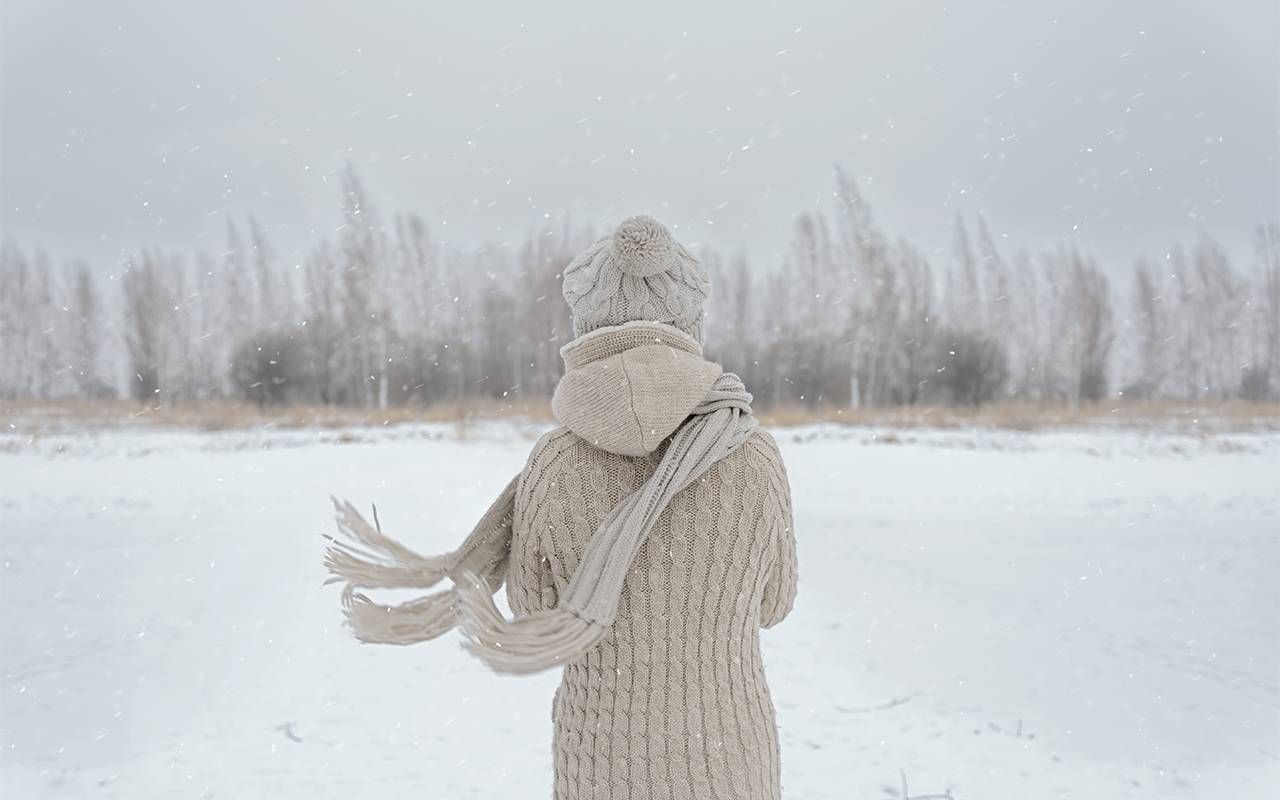How to Embrace the Holiday Season When You're Feeling Lonely
Longing for a person or a tradition at the holidays may be causing your loneliness. Here are 5 strategies to help you feel better.
Humans are naturally social, but in our busy and individualistic culture, social isolation and loneliness can affect many older adults. The holidays, in particular, are a trying time as the added pressures of celebration can feel more isolating when you don't have the same connections you once did.

While solitude does not mean loneliness for everyone, many older adults report feeling lonely during the holidays, and this can negatively impact their mental and physical health in a myriad of ways.
Just because you're alone this festive season or you're not celebrating the same way, it does not mean you shouldn't find joy in your cherished holidays.
But just because you're alone this festive season or you're not celebrating the same way, it does not mean you shouldn't find joy in your cherished holidays.
Social Isolation and Loneliness Post-Pandemic
Social isolation and loneliness are serious issues for older adults and have such a significant impact on our health that prolonged isolation is viewed as the equivalent of smoking 15 cigarettes a day.
While the issue is not new, the pandemic has worsened the situation. In 2018, the AARP Foundation found that 35% of adults over 45 were lonely. That number jumped significantly in 2020, with over 50% of adults over 50 surveyed reporting feelings of isolation.
While feelings of social isolation and loneliness are more likely to result from a lack of contact with others, it's important to remember that you can experience loneliness in any number of scenarios.
"Loneliness is an emotion. You can feel it regardless of your relationships and the number of people around you. You can have friends and family in your life and still feel lonely," says Carrie Ditzel, Ph.D., Clinical Psychologist and Director of Geropsychology at Baker Street Behavioral Health in New York City.
According to Ditzel, while people who have experienced the loss of a spouse or have had family move away are most at risk for loneliness, so too are those experiencing other life transitions.
"If you're struggling with depression, a lack of mobility, or your children don't come around like they used to, you are at risk for developing feelings of loneliness, especially around the holidays," Ditzel said.
When older adults don't manage feelings of loneliness in a healthy way, they can develop depression, anxiety and even memory issues, she noted.
The Challenges of the Holiday Season
According to Ditzel, much of the typical advice we give to people struggling with loneliness misses the mark.
Maybe you used to love hosting the holiday gathering, but you've passed that torch to a family member. You may feel grief because you miss fulfilling that host role.
"If you just want to be around people, going to a party or volunteering at a soup kitchen may be helpful," Ditzel said. "But for many others who are grieving the loss of something intangible and complex, just being around people may not address the deep root of that feeling."
Maybe you used to love hosting the holiday gathering, but you've passed that torch to a family member. You may feel grief because you miss fulfilling that host role.
Maybe you've recently stopped drinking, and you're nervous about navigating celebrations sober. You may feel disconnected because of that choice, and you long for the ease of socializing with alcohol.
You may long for a person, a tradition or a feeling.
No matter what is causing your loneliness, Ditzel says the first step to coping is acknowledging your feelings and getting curious about their origin.
"Once you understand the true root of your feelings — be it loss, grief or disconnection — you can choose an action to address it," she said.
5 Ways to Embrace the Holidays
Sara Zeff Geber is an author, speaker and a national expert on solo aging. Geber defines solo agers as baby boomers without any children and she's an advocate for them to live life to the fullest in retirement.
"In my experience, everyone is a bit nervous about navigating the holidays, but people don't talk about it much," said Geber. "The key is being proactive and taking the uncertainty out of the season."
"Don't wait around for an invitation that may not come. Be proactive and plan your own events, trips or parties."
Here are our top five tips for navigating the holidays alone and celebrating the season in a way that's meaningful to you.
Acknowledge and Accept Difficult Feelings
Diztel often helps her older adult clients navigate loneliness by helping them to accept it first."It's common for us to try to push difficult feelings away, but that only leads to them building up," she said.
By acknowledging these negative feelings without judgment, we can process our emotions in a healthy way.
Dig Deeper to the Root of Your Loneliness
It's crucial to examine your feelings. Only by understanding the source of your loneliness can you choose an action that will meaningfully improve your situation.
- If you miss hosting, can you schedule another party to host soon?
- If you miss your friend who moved away, can you set up regular phone or video chats?
- If you miss the sense of purpose you had when raising your children, can you volunteer your time similarly helping others?
Remind Yourself of Your Resilience
One surprising finding of that AARP survey was that older adults cope better with social isolation than younger people, which makes sense to Ditzel.
"One of the great benefits of working with older adults is their rich life experience and proven track record of resilience. When I'm working with someone struggling with loneliness, I ask them to recall when they overcame a difficult situation in the past," Ditzel said. "So often, my clients find the answers within."
In her practice, Ditzel routinely asks her clients what has worked for them in the past to find possible solutions and remind them of the strength they've already demonstrated in their lives.
"Life is full of transitions, and reminding my clients that they've successfully coped with all the other transitions empowers them to find solutions and coping mechanisms for the situation they're weathering now," she said.
Plan Early
"The biggest factor to consider for people spending the holidays alone is to plan and plan early," Geber said. She recommends asking other single friends every fall what they're doing for the holidays.
"Don't wait around for an invitation that may not come. Be proactive and plan your own events, trips or parties," Geber said.
No matter what you plan on doing (or not doing) for the holidays, going into the season with a plan will reduce your anxiety and allow you to set boundaries with others around your plans as needed.
Try New Things and Build New Traditions
"It's okay to miss the holidays of your past and the traditions you used to keep, but you can also evolve the holiday season with new traditions and activities. Ask yourself: How do I want to celebrate this holiday as I am now?" said Ditzel.
She added that there are no wrong answers, and you can always skip traditions or parties that don't resonate with you and the season of life you're in now. What matters is feeling empowered and choosing what feels right to you.
"Whatever you feel is okay. You should never fear your emotions. But if you're worried about the holiday season or about someone else being lonely, your actions are what count," said Ditzel.


